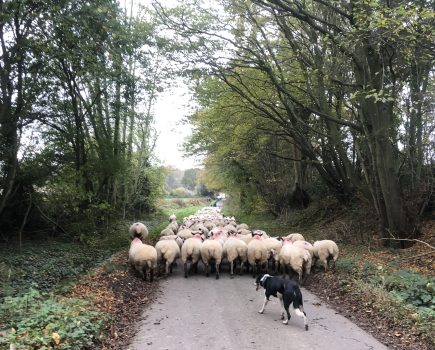Some years ago Openfield developed a direct link with the Slavuta Malting Company in Ukraine, supplying malting barley from the South of England. The journey for the many shipments of malting barley was long and hazardous. It started at Southampton; from there the sea journey was via the North Sea, Denmark and Sweden, into the Baltic Sea to be discharged at the Lithuanian port of Klaipėda. Then it was loaded onto trains and went overland to the Ukraine via Belarus. Slavuta is 180 miles West of Kyiv, closer to the Black Sea than the Baltic. It was a difficult journey then; now it would be impossible.
Talking to our friends at Slavuta I’m pleased to say that while they had to close for a month at the start of the war, they are now safe, being on the western side of Ukraine, and are back in full malt production. Other international maltsters and brewers in Ukraine have not been so lucky and are closed for the foreseeable future. What this does confirm is that rail links between Ukraine and the Baltic ports of Gdańsk in Poland and Klaipėda in Lithuania are open. They may not be able to travel via Belarus, but they certainly can via Bulgaria, Romania and Poland. This gives them access to export markets that don’t depend upon Russia for anything.
My much vaunted £50 war premium did come out; in fact £54 was eventually lost from the high point in November wheat futures. Was this a result of a ceasefire? No, it was simply rumours of Russia opening up “corridors” to allow the export of Ukraine’s land-locked twenty million tonnes of wheat. After some recovery of this correction, again Russian talks with Turkey, allegedly to allow Russian navel ships to escort grain shipments via the Bosporus, caused the market to fall. All this on rumour alone! You can only imagine what type of reaction you would have if there really were a ceasefire of any sort.
The northern hemisphere harvest comes inexorably closer. As I said last month, I don’t believe there are any real weather issues anywhere that we have not seen before. July is a key month for the world’s maize crop, but just now expectations are optimistic, meaning maize is cheaper in the world than barley and wheat. Both UK ethanol plants are talking about continuing to use maize instead of wheat.
The winter barley harvest has already begun in France, the Balkans and the Ukraine. We will start in the middle of July, as the much needed sunshine is changing the colour of our winter barley. Sorry to spoil the bullish fun, but we have seen the top of this new crop market. Of course, we won’t go back to the new crop market low of last October, but even from today’s levels you could see another £20 evaporate from the wheat price. As for sanctions, so far Russia has not stopped selling and exporting wheat; recently it sold 300,000 tonnes to Egypt. Like many others, when the chips are down they will buy from the cheapest seller, especially if their people are hungry.
In my view, if there were a weather market in the rest of the world it’s over for now anyway. The war is only just making the fourth item on the daily news, behind 40-year high interest rates and inflation, energy increasing from 50p to £2 per therm, deportation (or not) to Rwanda and useless England losing four nil to Hungary. That said, the algorithms employed by the big hedge funds to implement futures strategy never sleep! If they pick up an overnight “tit bit” about the war on Reuters that may be interpreted as bullish or bearish, buying or selling instructions will be automatically executed without reference to any human trader. It’s little wonder we have volatility! It used to be that you could only get the market wrong if you were at your trading desk while the futures markets were open. Not anymore. Now the algorithms can get it wrong for you while you’re sleeping.
When the harvest starts, price will be a secondary issue to execution. If, as I hope, the front end of the barn is overflowing, more will need to be sold and moved. In Ukraine the USDA is forecasting a 5.5 million tonne increase in maize production. Farmers are looking at silo bags to store the upcoming harvest, so they won’t be concerned about price, just execution. Likewise, the eager world buyers will be finding ways to access their crops.
War or not, surplus will find its way to the market. It’s rumoured a recent survey suggested the UK could have a bigger wheat crop of 15 million tonnes, 1 million up on last year. If true, we would have an exportable surplus but it would have to be sold at export price parity and, guess what, that would be whatever Russia decides to sell its 40 million tonne surplus at; there’s a thought to conjure with!







